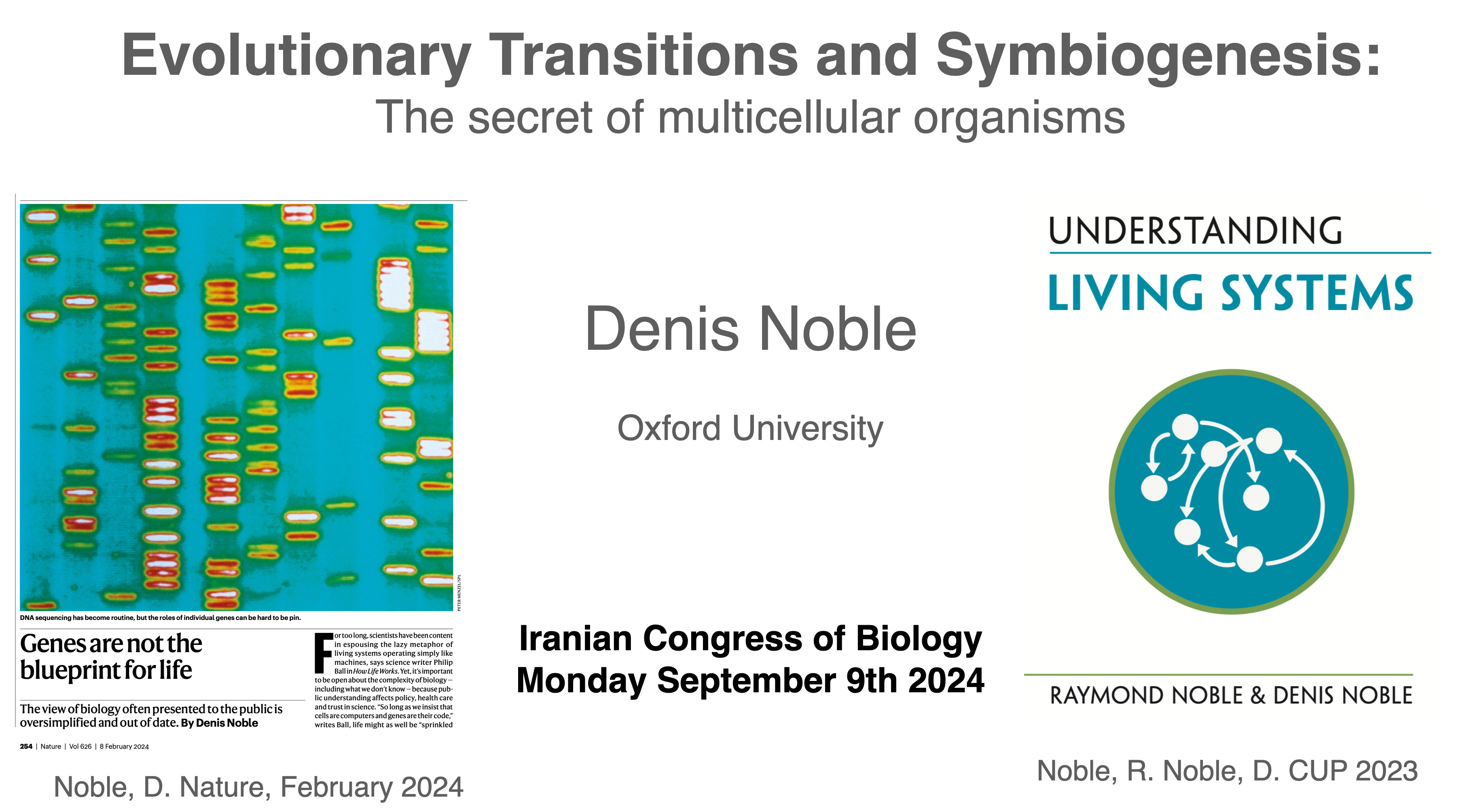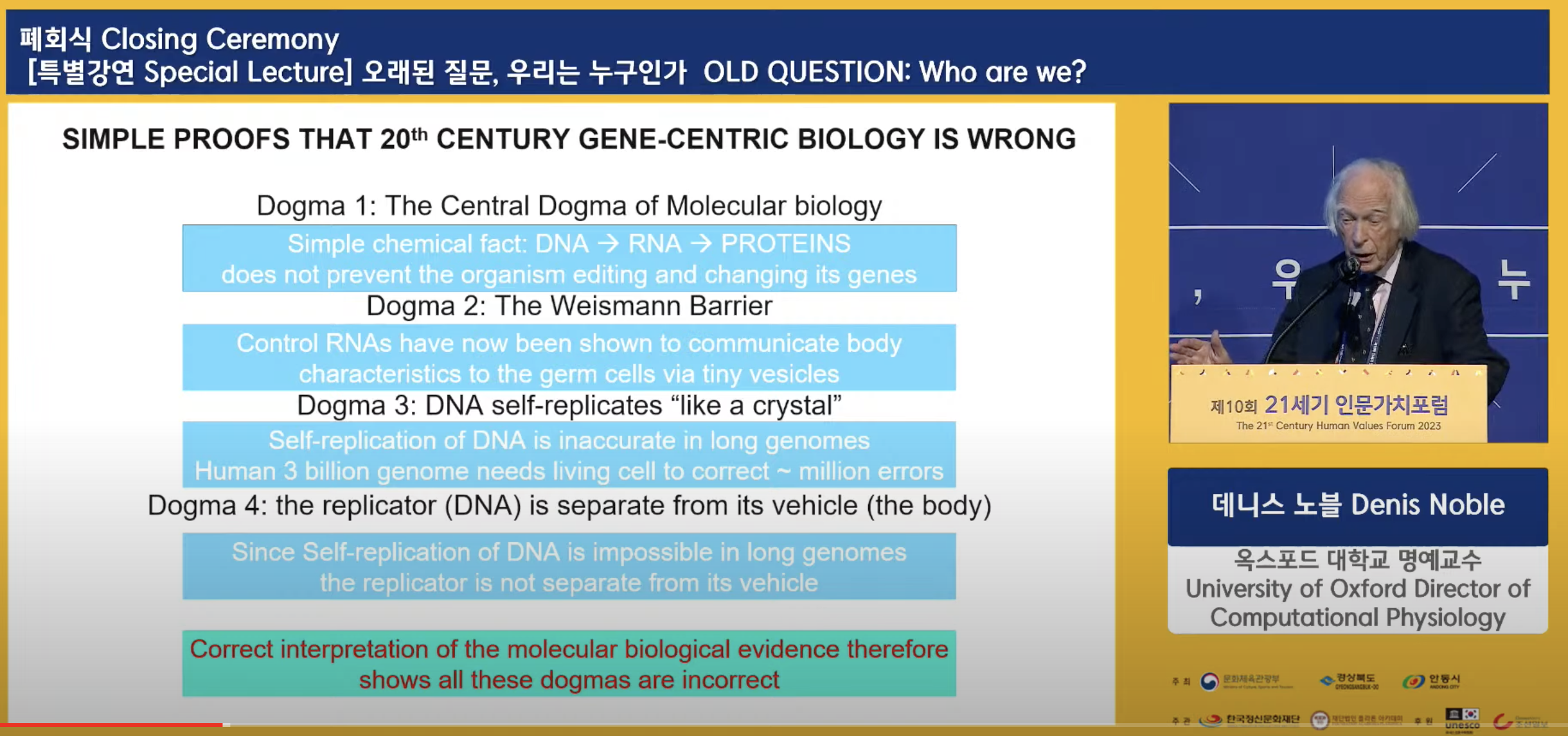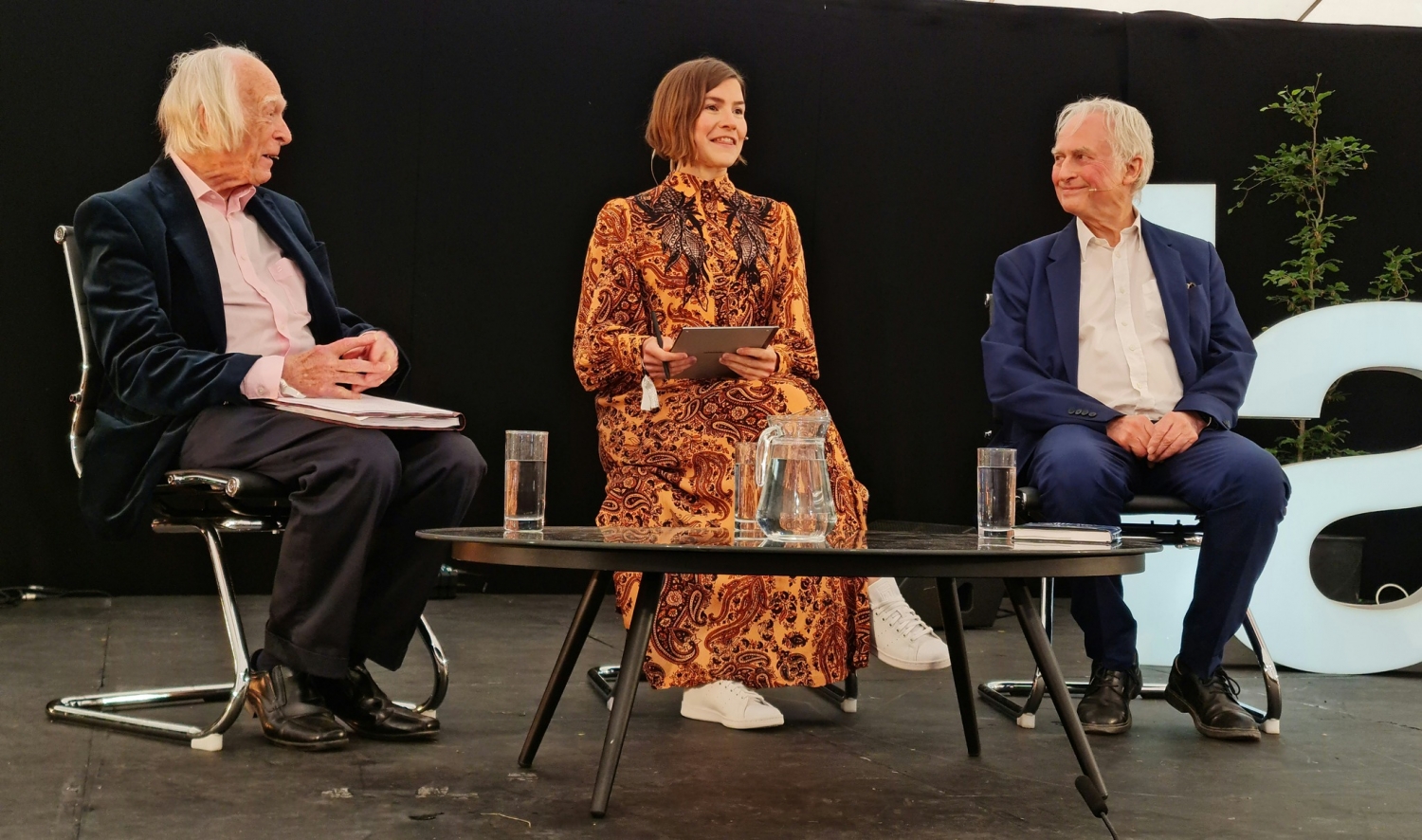Selected Lectures and Debates
The Greatest Transition in Evolution?
After the origin of life, Symbiogenesis has a claim to be the greatest transition in the evolution of life on earth. The reason is a simple physiological fact. Organisms greater than microscopic size would have been impossible without the symbiotic events that enabled the creation of mitochondria in animal cells and plastids in plant cells. Both transitions resulted in a surge of energy available. That made it possible for energy to be available for hearts and circulations needed to exchange oxygen, carbon dioxide and nutrients between all parts of large organisms and their environments. The lecture was first delivered in September 2024 to the Annual Congress of the Iranian Society of Biology.
Who Are We?
Why does evolutionary biology matter to the big questions we face as human beings? The Russian novelist Tolstoy made a character in Anna Karenina say: “Without knowing who I am and why I am here, life is impossible”. Do we and other organisms have purpose? Noble explains why the alternative to the Selfish Gene view of organisms is empowering, and why biology needs to understand the agency of living systems. The lecture begins at around 3 minutes.
The Selfish Gene
Video of Denis Noble and Richard Dawkins discussing The Selfish Gene at the Hay Festival of the Institute of Art and Ideas (IAI) in June 2022. Chaired by geneticist, Gunes Taylor, from the Crick Institute in London. The video was subtitled in Korean by the Platon Academy by permission of the IAI. Click on image to view video. The transcript is available below, and an article on the Origins and Demise of Selfish Gene Theory.
Lecture on Physiology and Evolution given at an international Congress in Suzhou, China, in 2012. This was the first videoed lecture at which Denis Noble outlined his reasons and evidence for dissenting from the neo-Darwinist Modern Synthesis. The lecture was then published as an article. The reaction of leading Neo-Darwinists was outrage, leading to an attempt to stop a 2016 Discussion meeting at The Royal Society (see next video). The recording of the lecture has also been pirated to appear on many other websites and may now have been viewed about 100,000 times.
Lecture given at The Physiological Society in London in November 2016 on the publication of Dance to the Tune of Life. That is the main title of the lecture. The subtitle is “A physiologist enters the lions’ den of evolutionary biology.”
The lecture is similar to that delivered to The Royal Society earlier in November at the discussion meeting on New Trends in Evolutionary Biology. The ending of the lecture answers some of the on-line critics, including some who tried to stop the Royal Society meeting.
Was the watchmaker blind?
Lecture on Dance to the Tune of Life to the Oxford Biochemistry Society on why organisms are active in determining their genetic changes. Denis Noble was introduced as the founder of systems biology so he begins by saying that there many such founders, some in the audience.
The lecture explains that stochasticity necessarily exists together with directed change. Chance at the molecular level does not mean that the outcome is chance.
The lecture also highlights the work of Barbara McClintock and James Shapiro in showing directed genome change in plants and bacteria.
The lecture is followed by fascinating discussion (in many ways the most important part of the recording) with faculty and students, led by the President of the student society who begins the discussion with a series of challenging questions. The question at what level events are stochastic is a key issue.
In many ways, the discussion is the richest part of this recording. There is a challenge at 44 minutes from a student raising the question why the mechanism of inheritance should matter to evolutionary biology. The answer is that the concept of a “gene” used in standard evolutionary biology was not originally a DNA sequence. It was anything that causes inheritance. Such a “gene” is necessarily the cause of the phenotype, whereas DNA sequences need to be shown to be a cause. The discussion ends with whether selfishness is a property of genes or of organisms.
What is Life? — The Future of Biology
Lecture delivered in Spring 2014 in the “What is Life?” series at the prestigious Karolinska Institutet in Stockholm. The lecture explains why Schrodinger’s idea on the genetic material (now known to be DNA, but not known in 1943) that it might replicate faithfully like a crystal is incorrect. As first noted by Jean-Jaques Kupiec, we know that it does not. Faithful replication depends on extensive error-correcting processes that only take place within a living cell. The consequences are profound.
Lecture on The Music of Life given to a general audience in 2012. Stories from The Music of Life are accompanied by background music. The lecture was delivered at an OUT OF THE BOX conference in Maribor, Slovenia, and is typical of many general audience presentations on the book. The conference ended with an open session with HH The Dalai Lama
The scene is Oxford 2009. The university had appointed a ground-breaking scientist as its Eastman Visiting Professor. Lynn Margulis was the champion of a form of evolutionary change (symbiogenesis) that is revolutionary in its impact. As soon as she arrived in Oxford she challenged Richard Dawkins to a debate, and asked Denis Noble to chair it. She also recruited two leading biological scientists to join the debate. It was all recorded by Voices from Oxford. This video is the first part of the debate. Two further parts are linked here: Part 2, featuring a film explaining symbiogenesis, and part 3. which is an audio recording of the final discussion.
Historians and philosophers of science, as well as biologists generally, will be interested in the Transcript and Commentary on the debate. This was compiled by James MacAllister who was present at the debate and was responsible for the audio recording. The unedited complete transcripts can be downloaded from these links: Part1, Part2, Part3.
There is also a marvellous documentary film produced by John Feldman for Hummingbird films entitled Symbiotic Earth: How Lynn Margulis rocked the boat and started a scientific revolution. To view a trailer and information on how to view the film or use it in academic and community screenings visit: https://hummingbirdfilms.com/symbioticearth/watch-the-film/
Evolution Conversation
Held during Experimental Biology 2015 in Boston, USA
Chaired by David Paterson, then Editor in Chief of the Journal of Physiology, Michael Joyner (Mayo Clinic) and Denis Noble (Oxford University) discuss what is a gene and why gene-centric theories of evolution have failed medical science.
Chemistry of Life begins with Water
Life begins with and and depends on the strange physical and chemical properties of water. This lecture by Denis Noble was delivered to a Biology Congress in Iran in 2022. In simple language it shows why water is crucial to our ability to exercise freedom in choosing our actions and in being creative.
The Role of Chance in Living Organisms
Lecture delivered in Paris to the 2021 TimeWorld Congress on the role of chance. The lecture was given in French. There is also a version with English subtitles.
Lecture at 2020 Boston Symposium on Cancer & Evolution
Lecture on Cellular Darwinism: regulatory networks, stochasticity, and selection in cancer development. Cancerous tumours actively harness stochasticity by rapidly mutating. Late-stage chemo- and radio-therapy may then provoke new forms in a rapid radiation of genomic forms.



